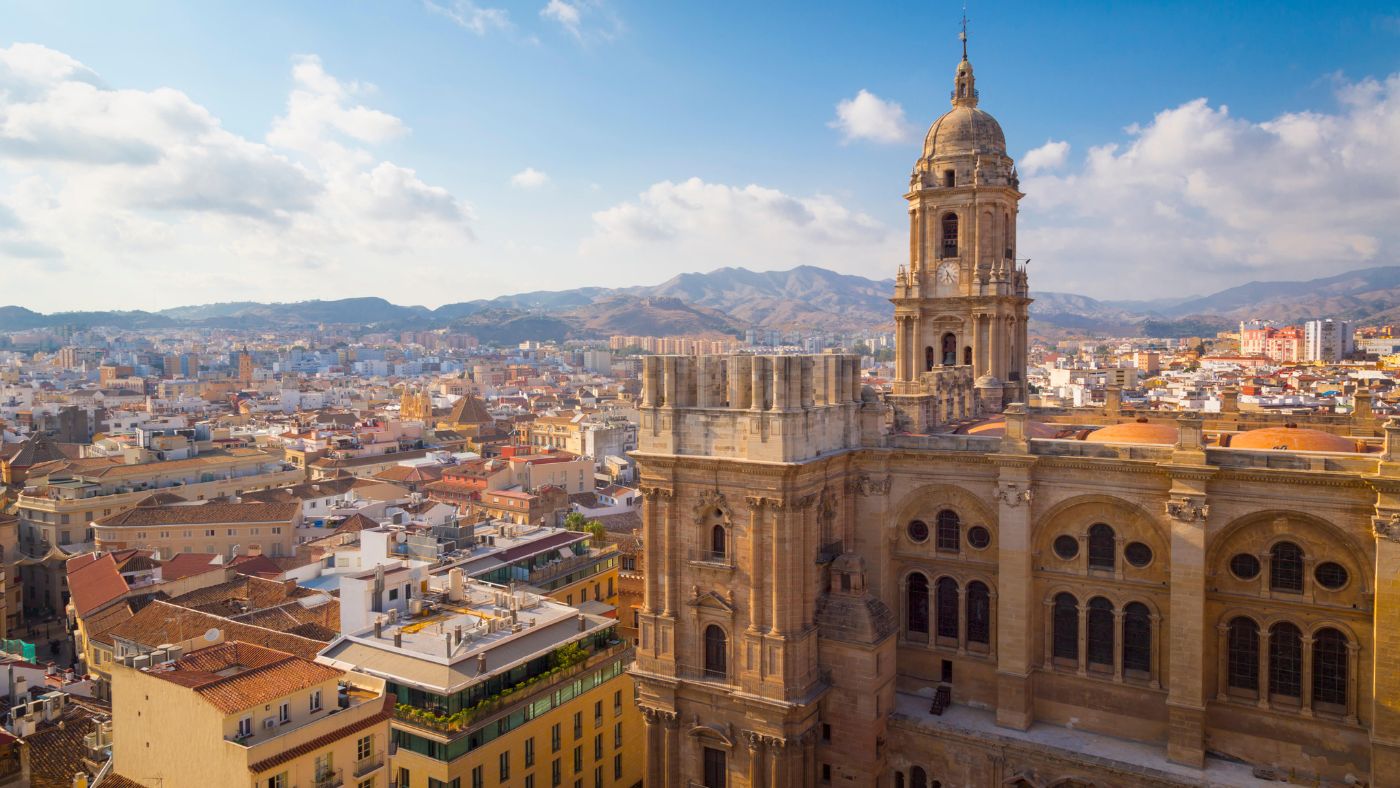Discovering Picasso’s roots in Málaga, Andalusia
Not only is Málaga ‘idyllic’, it is an essential destination for an ‘immersion tour’ of Picasso’s life

A free daily email with the biggest news stories of the day – and the best features from TheWeek.com
You are now subscribed
Your newsletter sign-up was successful
This year marks the 50th anniversary of Pablo Picasso’s death, and museums across Europe and the US are “pulling out all the stops” to celebrate his life and work. Among the most essential destinations on any “immersion tour” is Málaga, says Andrew Ferren in The New York Times. Picasso was born in this Andalusian city, and though his family moved to A Coruña, in northern Spain, when he was nine, he always “considered himself a malagueño”. It was in Málaga that his artistic gift was first recognised by his father, José Ruiz y Blasco, a painter and art teacher, and aspects of the city and its “deeply layered” heritage would appear repeatedly in his work.
Málaga was founded by the Phoenicians in the seventh century BC, and you can get a powerful sense of its ancient roots and the “idyllic” aspects of life here by visiting the Roman theatre and the Moorish hilltop fortress, the Alcazaba, with its elegant arcades, “lush” gardens and “countless” fountains. For an “amazingly thorough and detailed chronicle” of the city’s history, head to the Museum of Málaga, where there’s a particularly strong collection of paintings depicting scenes – “raucous” celebrations after bullfights, elegant garden parties and so on – from the era of Picasso’s childhood (he was born in 1881). Yet more essential is a visit to his childhood home, the Casa Natal, where there are exhibitions of his prints, drawings and sketchbooks, and also of family heirlooms and photos.
Picasso left Spain during the Civil War in the 1930s and – an enemy of the Franco government – never returned. Plans to establish a museum of his work in Málaga in the 1950s were quashed by the regime, and it was not until 2003 that the Museo Picasso Málaga opened, spearheading a wave of openings (including a satellite branch of the Pompidou Centre) that has electrified the city’s cultural scene. Housed in a 16th century palace, it tells the story of the artist’s career through an astonishingly diverse collection of 250 works.
The Week
Escape your echo chamber. Get the facts behind the news, plus analysis from multiple perspectives.

Sign up for The Week's Free Newsletters
From our morning news briefing to a weekly Good News Newsletter, get the best of The Week delivered directly to your inbox.
From our morning news briefing to a weekly Good News Newsletter, get the best of The Week delivered directly to your inbox.
Sign up for the Travel newsletter for destination inspiration and the latest news and trends
A free daily email with the biggest news stories of the day – and the best features from TheWeek.com
-
 Kia EV4: a ‘terrifically comfy’ electric car
Kia EV4: a ‘terrifically comfy’ electric carThe Week Recommends The family-friendly vehicle has ‘plush seats’ and generous space
-
 Bonfire of the Murdochs: an ‘utterly gripping’ book
Bonfire of the Murdochs: an ‘utterly gripping’ bookThe Week Recommends Gabriel Sherman examines Rupert Murdoch’s ‘war of succession’ over his media empire
-
 Gwen John: Strange Beauties – a ‘superb’ retrospective
Gwen John: Strange Beauties – a ‘superb’ retrospectiveThe Week Recommends ‘Daunting’ show at the National Museum Cardiff plunges viewers into the Welsh artist’s ‘spiritual, austere existence’
-
 Bad Bunny’s Super Bowl: A win for unity
Bad Bunny’s Super Bowl: A win for unityFeature The global superstar's halftime show was a celebration for everyone to enjoy
-
 Book reviews: ‘Bonfire of the Murdochs’ and ‘The Typewriter and the Guillotine’
Book reviews: ‘Bonfire of the Murdochs’ and ‘The Typewriter and the Guillotine’Feature New insights into the Murdoch family’s turmoil and a renowned journalist’s time in pre-World War II Paris
-
 6 exquisite homes with vast acreage
6 exquisite homes with vast acreageFeature Featuring an off-the-grid contemporary home in New Mexico and lakefront farmhouse in Massachusetts
-
 Film reviews: ‘Wuthering Heights,’ ‘Good Luck, Have Fun, Don’t Die,’ and ‘Sirat’
Film reviews: ‘Wuthering Heights,’ ‘Good Luck, Have Fun, Don’t Die,’ and ‘Sirat’Feature An inconvenient love torments a would-be couple, a gonzo time traveler seeks to save humanity from AI, and a father’s desperate search goes deeply sideways
-
 A thrilling foodie city in northern Japan
A thrilling foodie city in northern JapanThe Week Recommends The food scene here is ‘unspoilt’ and ‘fun’


